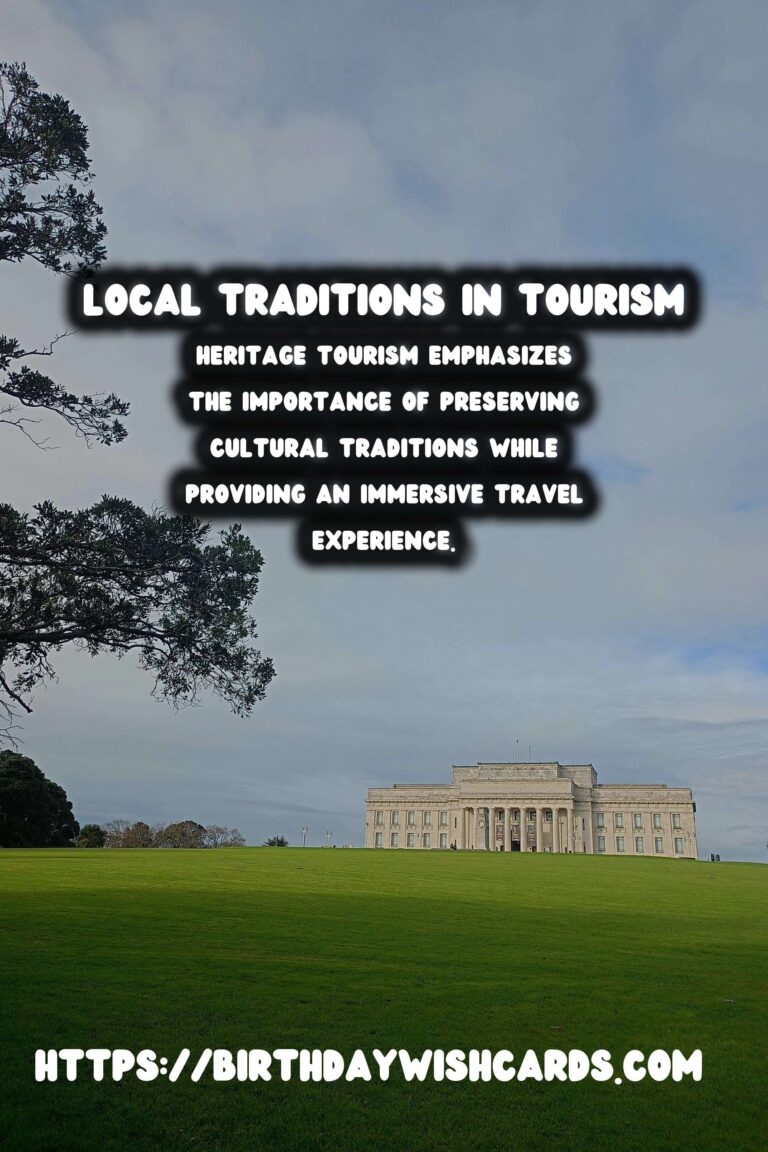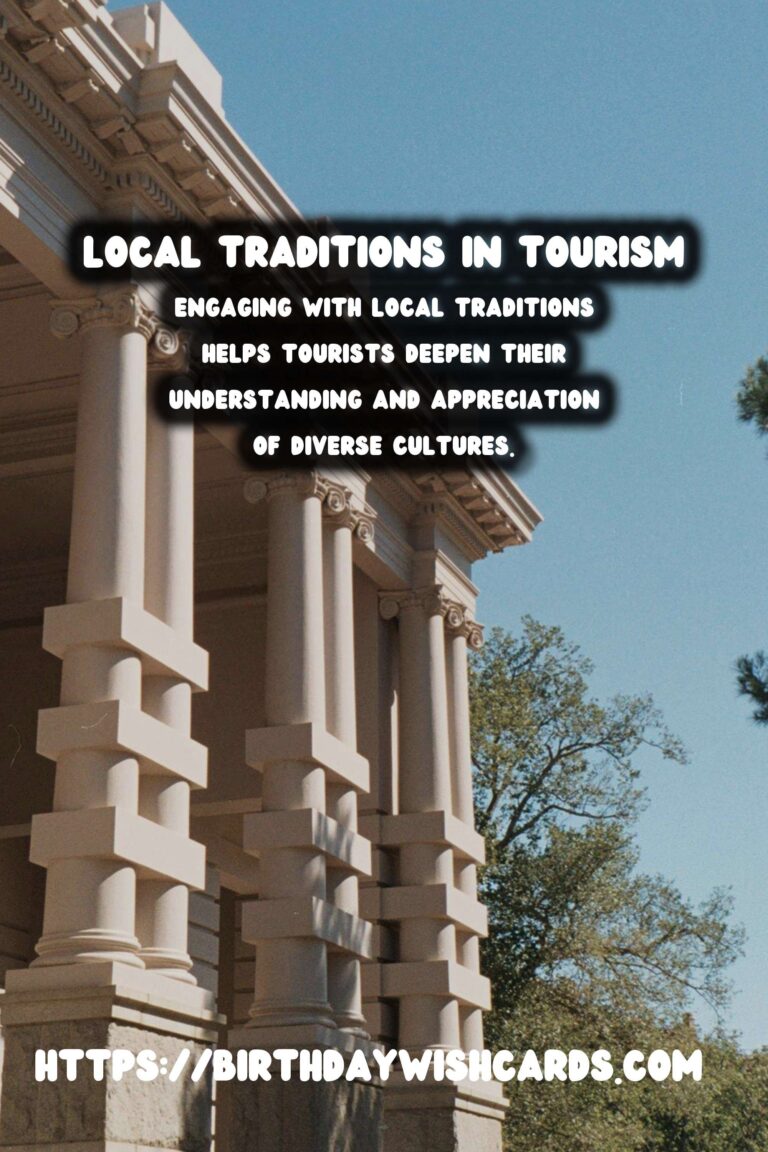
Heritage tourism is more than just visiting ancient sites or museums; it’s about experiencing history and culture as living aspects of a community. By engaging with local traditions responsibly, tourists can enrich their travel experiences while contributing positively to the preservation of cultural heritage.
The Importance of Responsible Heritage Tourism
Responsible heritage tourism emphasizes the significance of sustainable practices that respect local cultures and contribute to their preservation. This approach not only protects historical sites but also boosts the local economy by encouraging community involvement.
Tourists who engage in responsible tourism often find themselves participating in local festivals or ceremonies, providing a firsthand understanding of the culture’s richness. This direct engagement fosters a sense of connection and appreciation far beyond what can be achieved through casual sightseeing.
Learning from Local Traditions
Engaging with local traditions involves more than observing; it requires active participation and a willingness to learn. Travelers can attend workshops to learn traditional crafts, participate in local cooking classes, or even join cultural exchange programs.
It’s important that travelers approach such experiences with respect and openness, viewing them as opportunities to learn rather than merely a checklist of activities. This mindset supports the preservation of cultural traditions by keeping them alive and relevant.
Benefits to Local Communities
Responsible heritage tourism can significantly benefit local communities. By supporting local craftspeople and businesses, tourists help preserve cultural practices that could otherwise be at risk of fading into obscurity. This economic support often enables communities to sustain their cultural heritage and improve their living conditions.
Additionally, when communities notice that their cultural heritage is appreciated and valued by visitors, there can be a renewed interest in preserving and sharing these traditions, ensuring that they are passed down through generations.
Challenges and Solutions
While the benefits are substantial, challenges such as cultural appropriation, commercialization, and environmental impact must be addressed. Travelers must be educated on respecting cultural nuances to avoid inadvertently offending their hosts.
Using local guides can enhance the tourist experience, providing in-depth knowledge while ensuring respectful interaction with cultural sites and traditions. Incorporating educational elements into tours can also mitigate negative impacts by informing travelers about the significance of preserving cultural heritage.
Conclusion
Responsible heritage tourism not only enhances the travel experience but plays a pivotal role in cultural preservation. By learning from local traditions, travelers can enjoy a deeper understanding of the world’s diverse cultures and contribute positively to their preservation.
With conscious efforts from both tourists and local communities, heritage tourism can be a powerful tool for positive cultural exchange and mutual respect.
Heritage tourism emphasizes the importance of preserving cultural traditions while providing an immersive travel experience. Engaging with local traditions helps tourists deepen their understanding and appreciation of diverse cultures.
#ResponsibleTourism #HeritagePreservation

